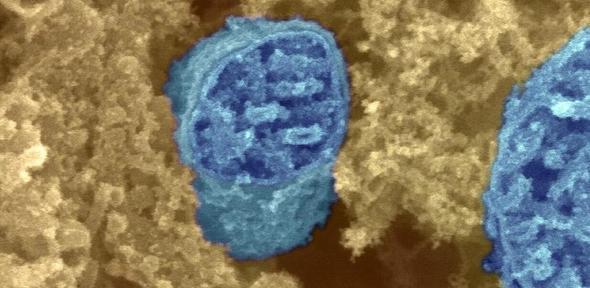
Submitted by Penny Peck on Wed, 05/10/2022 - 11:23
Mitochondria are tiny ‘organelles’ that sit within our cells, where they act like batteries, providing energy in the form of the molecule ATP to power the cells. Each mitochondrion has its own DNA – mitochondrial DNA – that is distinct to the rest of the human genome, which is comprised of nuclear DNA.
The results of a research study led by Professor Patrick Chinnery, in collaboration with researchers at Queen Mary University of London, have been reported in Nature today, and show that small chunks of human mitochondrial DNA (mtDNA) migrate into the nuclear genome at a measurable rate.
This is a new discovery, and the migration happens every 4000 births, which means that we all carry different chunks of mtDNA in our nuclear genome - contributing to genetic diversity in the population.
These chunks of mtDNA can disrupt genes and cause rare diseases or cancer.
In some cancers, the mitochondrial DNA is inserted into the cancer nuclear genome hundreds of times.
The pattern of the mitochondrial DNA inserts indicates that they are acting like ‘band-aids’, helping to repair natural breaks on our nuclear genetic code.
University of Cambridge Press Release
Full publication reference:
Wei, E et al. Nuclear-embedded mitochondrial DNA sequences in 66,083 human genomes. Nature; 5 Oct 2022; DOI: 10.1038/s41586-022-05288-7
Image: Mitochondria surrounded by cytoplasm. Credit: Dr David Furness

